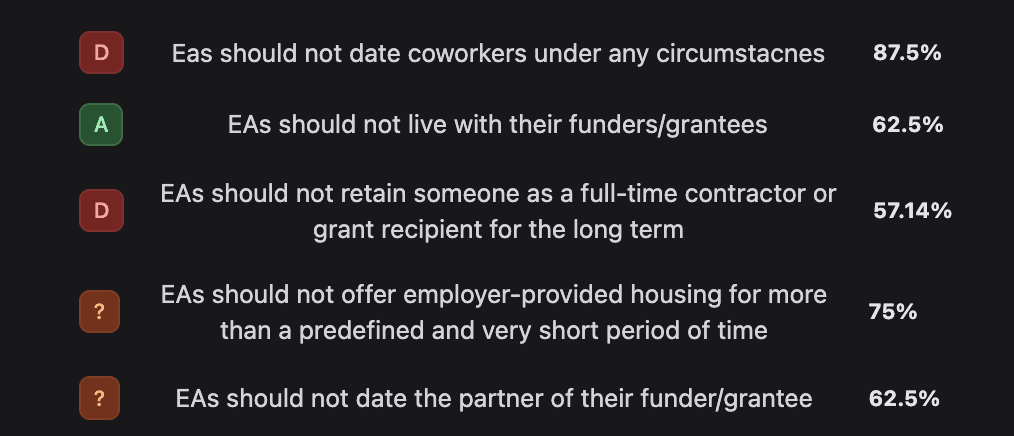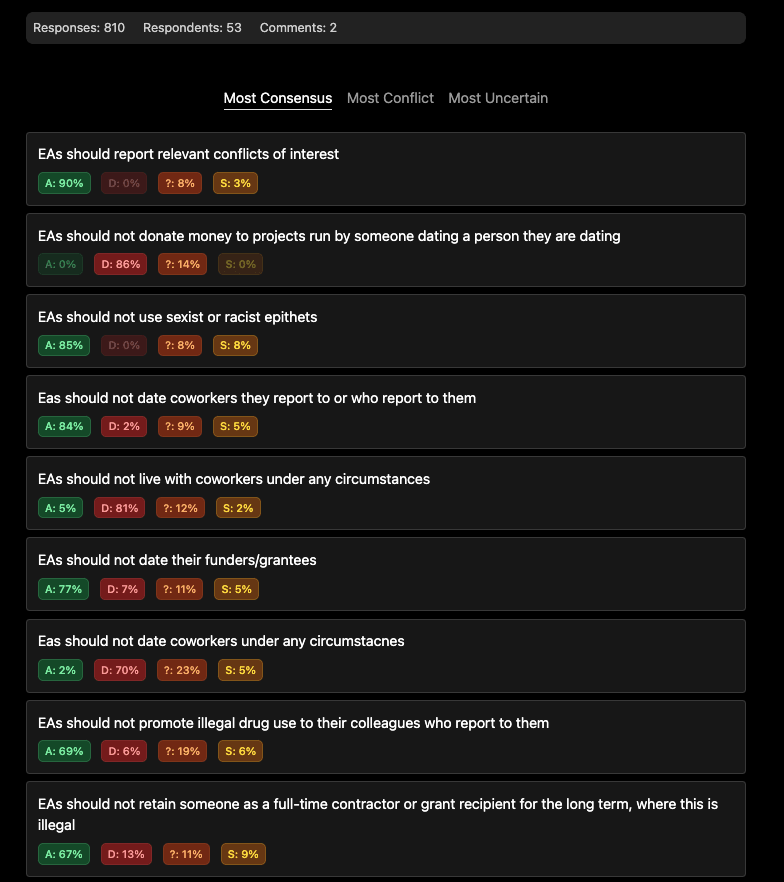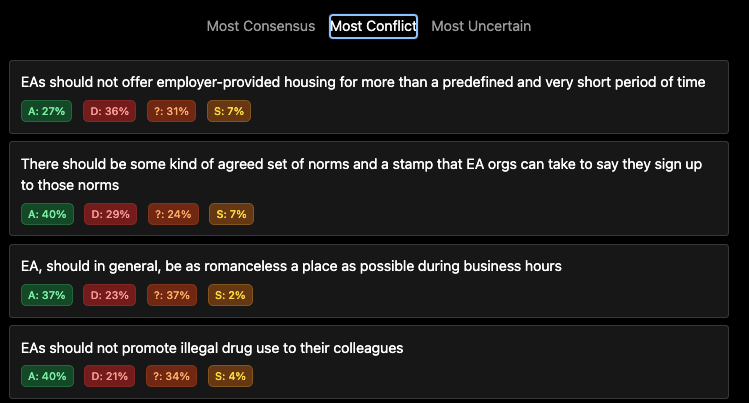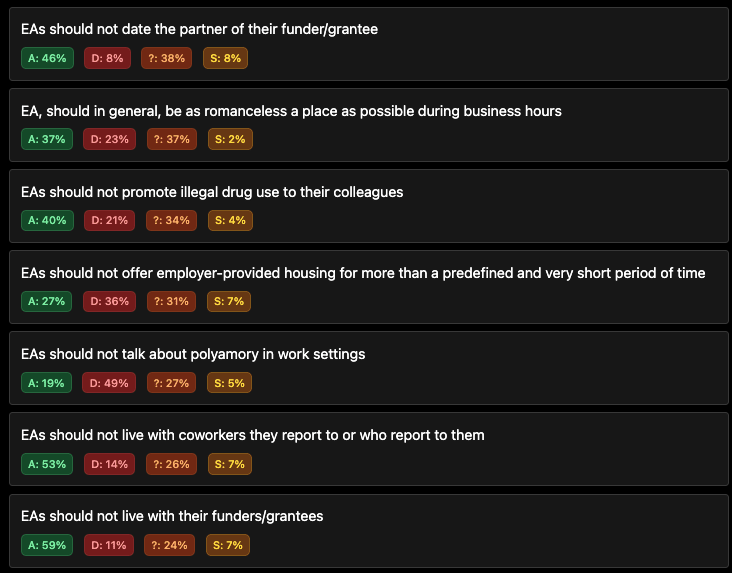There has already been ample discussion of what norms and taboos should exist in the EA community, especially over the past ten months. Below, I'm sharing an incomplete list of actions and dynamics I would strongly encourage EAs and EA organizations to either strictly avoid or treat as warranting a serious—and possibly ongoing—risk analysis.
I believe there is a reasonable risk should EAs:
- Live with coworkers, especially when there is a power differential and especially when there is a direct report relationship
- Date coworkers, especially when there is a power differential and especially when there is a direct report relationship
- Promote[1] drug use among coworkers, including legal drugs, and including alcohol and stimulants
- Live with their funders/grantees, especially when substantial conflict-of-interest mechanisms are not active
- Date their funders/grantees, especially when substantial conflict-of-interest mechanisms are not active
- Date the partner of their funder/grantee, especially when substantial conflict-of-interest mechanisms are not active
- Retain someone as a full-time contractor or grant recipient for the long term, especially when it might not adhere to legal guidelines
- Offer employer-provided housing for more than a predefined and very short period of time, thereby making an employee’s housing dependent on their continued employment and allowing an employer access to an employee’s personal living space
Potentially more controversial, two aspects of the community I believe have substantial downsides that the community has insufficiently discussed or addressed:
- EA™ Group Houses and the branding of private, personal spaces as “EA”
- "Work trials" that require interruption of regular employment to complete, such that those currently employed full-time must leave their existing job to be considered for a prospective job
As said, this list is far from complete and I imagine people may disagree with portions of it. I’m hoping to stake this as a position held by some EAs and I’m hoping this post can serve as a prompt for further discussion and assessment.
- ^
“Promote” is an ambiguous term here. I think this is true to life in that one person’s enthusiastic endorsement of a drug is another person’s peer pressure.





I'm concerned about EA falling into the standard "risk-averse bureaucracy" failure mode. Every time something visibly bad happens, the bureaucracy puts a bunch of safeguards in place. Over time the drag created by the safeguards does a lot of harm, but because the harm isn't as visible, the bureaucracy doesn't work as effectively to reduce it.
I would like to see Fermi estimates for some of these, including explicit estimates of less-visible downsides. For example, consider EA co-living, including for co-workers. If this was banned universally, my guess is that it would mean EAs paying many thousands of dollars extra in rent for housing and/or office space per month. It would probably lead to reduced motivation, increased loneliness, and wasted commute time among EAs. EA funding would become more scarce, likely triggering Goodharting for EAs who want to obtain funding, or people dying senselessly in the developing world.
A ban on co-living doesn't seem very cost-effective to me. It seems to me that expanding initiatives like Basefund would achieve something similar, but be far more cost-effective.
Just noting though that this would be a false dichotomy.
I agree that we shouldn’t have a universal ban on co-living and that bureaucracy is bad all else equal. But this doesn’t seem like the only option available. As Xavier_ORourke said above: “we can all contribute to preventing [the bullet pointed actions] by judging things on a case-by-case basis and gently but firmly letting our peers know when we disapprove of their choices”
I feel that our tendency as EAs to think of ourselves as analogous to one org where we can “ban” something is an issue within its... (read more)